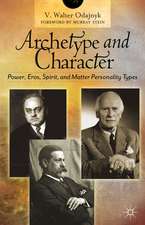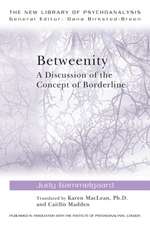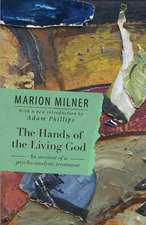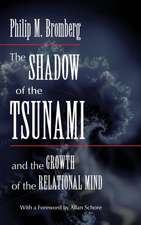Freud in the Pampas: The Emergence and Development of a Psychoanalytic Culture in Argentina
Autor Mariano Plotkinen Limba Engleză Paperback – 28 feb 2002
This is a fascinating history of how psychoanalysis became an essential element of contemporary Argentine culture—in the media, in politics, and in daily private lives. The book reveals the unique conditions and complex historical process that made possible the diffusion, acceptance, and popularization of psychoanalysis in Argentina, which has the highest number of psychoanalysts per capita in the world. It shows why the intellectual trajectory of the psychoanalytic movement was different in Argentina than in either the United States or Europe and how Argentine culture both fostered and was shaped by its influence.
The book starts with a description of the Argentine medical and intellectual establishments’ reception of psychoanalysis, and the subsequent founding of the Argentine Psychoanalytic Association in 1942. It then broadens to describe the emergence of a “psy culture” in the 1960s, tracing its origins to a complex combination of social, economic, political, and cultural factors. The author then analyzes the role of “diffusers” of psychoanalysis in Argentina—both those who were part of the psychoanalytic establishment and those who were not.
The book goes on to discuss specific areas of reception and diffusion of psychoanalytic thought: its acceptance by progressive sectors of the psychiatric profession; the impact of the psychoanalytically oriented program in psychology at the University of Buenos Aires; and the incorporation of psychoanalysis into the theoretical artillery of the influential left of the 1960s and 1970s. Finally, the author analyzes the effects of the military dictatorship, established in 1976, on the “psy” universe, showing how it was possible to practice psychoanalysis in a highly authoritarian political context.
The book starts with a description of the Argentine medical and intellectual establishments’ reception of psychoanalysis, and the subsequent founding of the Argentine Psychoanalytic Association in 1942. It then broadens to describe the emergence of a “psy culture” in the 1960s, tracing its origins to a complex combination of social, economic, political, and cultural factors. The author then analyzes the role of “diffusers” of psychoanalysis in Argentina—both those who were part of the psychoanalytic establishment and those who were not.
The book goes on to discuss specific areas of reception and diffusion of psychoanalytic thought: its acceptance by progressive sectors of the psychiatric profession; the impact of the psychoanalytically oriented program in psychology at the University of Buenos Aires; and the incorporation of psychoanalysis into the theoretical artillery of the influential left of the 1960s and 1970s. Finally, the author analyzes the effects of the military dictatorship, established in 1976, on the “psy” universe, showing how it was possible to practice psychoanalysis in a highly authoritarian political context.
| Toate formatele și edițiile | Preț | Express |
|---|---|---|
| Paperback (1) | 230.13 lei 22-36 zile | |
| Stanford University Press – 28 feb 2002 | 230.13 lei 22-36 zile | |
| Hardback (1) | 780.15 lei 43-57 zile | |
| Stanford University Press – 28 feb 2002 | 780.15 lei 43-57 zile |
Preț: 230.13 lei
Nou
Puncte Express: 345
Preț estimativ în valută:
44.04€ • 45.72$ • 36.72£
44.04€ • 45.72$ • 36.72£
Carte disponibilă
Livrare economică 03-17 martie
Preluare comenzi: 021 569.72.76
Specificații
ISBN-13: 9780804740609
ISBN-10: 0804740607
Pagini: 336
Dimensiuni: 152 x 229 x 18 mm
Greutate: 0.49 kg
Ediția:1
Editura: Stanford University Press
Colecția Stanford University Press
ISBN-10: 0804740607
Pagini: 336
Dimensiuni: 152 x 229 x 18 mm
Greutate: 0.49 kg
Ediția:1
Editura: Stanford University Press
Colecția Stanford University Press
Recenzii
"This is a marvelous book. Rich in narrative detail, sweeping in scope, and bold in interpretation, it offers a comprehensive account of one of the world's largest psychoanalytical movements. Plotkin also provides insights into Argentina's public and private cultures that are suffused from top to bottom with psychoanalytic concepts."—Jeremy Adelman, Princeton University
"This book is the first detailed study of how clinical work, literary and cultural movements, and even intellectual and political discourse [in Argentina] have been and continue to be profoundly shaped by psychoanalytic premises."—American Historical Review
"The achievement of Freud in the Pampas is its informative account of the enormous impact that psychoanalysis has had on Argentine culture and of the profound effect that the politicized culture of Argentina has had on psychoanalysis."—JAPA
"Mariano Plotkin's 2001 study, Freud in the Pampas: The Emergence and Development of a Psychoanalytic Culture in Argentina isan important and necessary book..."—Latin American Research Review
Notă biografică
Mariano Ben Plotkin is Director of the New York University site in Buenos Aires. He is the author of Mañana es San Perón: Propaganda, rituales políticos, y educación en el régimen peronista.
Textul de pe ultima copertă
“This is a marvelous book. Rich in narrative detail, sweeping in scope, and bold in interpretation, it offers a comprehensive account of one of the world's largest psychoanalytical movements. Plotkin also provides insights into Argentina’s public and private cultures that are suffused from top to bottom with psychoanalytic concepts.”—Jeremy Adelman, Princeton University
“This book is the first detailed study of how clinical work, literary and cultural movements, and even intellectual and political discourse [in Argentina] have been and continue to be profoundly shaped by psychoanalytic premises.”—American Historical Review
“This book is the first detailed study of how clinical work, literary and cultural movements, and even intellectual and political discourse [in Argentina] have been and continue to be profoundly shaped by psychoanalytic premises.”—American Historical Review





























